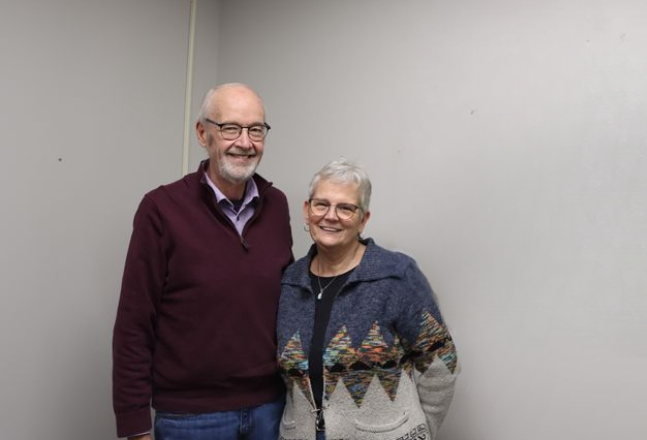
Following my first heart attack in July 2011, I had an ablation at University Hospital in London.
In August 2014, Helen and I decided to celebrate our 10th wedding anniversary with a trip. We planned to visit Chicago and then head to Wisconsin Rapids to see Helen’s elderly aunt and uncle. Chicago was amazing; we did all the touristy things and had a blast. But on the drive to the Rapids, things took a turn. We stopped at a rest area, and when I came back to the car, Helen noticed that I looked very fatigued and not well. She asked if I would like her to complete the drive, to which I agreed. Once we switched places, I reached over to adjust the car’s air conditioning. The next thing I remember was waking up in the back of an ambulance.
Recognizing that I was in crisis, Helen pulled me out of the car, threw me to the ground and initiated CPR. Fortunately, she had learned this skill through her job with the United Way. Her quick actions, along with the help of a nurse who happened to be at the rest stop, saved my life. I was taken to the University Hospital in Madison. The doctors were astonished; they said people don’t just wake up like I did after such an incident.
After being admitted, they determined I needed an ICD (Implantable Cardioverter Defibrillator) device. Thankfully, we had travel insurance, which covered the basic hospitalization costs. However, the insurance company wanted me back in Ontario for the implantation procedure. After several frantic calls, they found a hospital bed for me at London Health Sciences Centre. I was then airlifted to London for the surgery.
The ICD device worked well for several years, but about five years in, Dr. Stuart Smith first mentioned the possibility of a heart transplant. At 65, I was surprised, thinking transplants were reserved for younger patients. Dr. Smith reassured us that my age wouldn’t be a problem and they started the testing process just in case a transplant became necessary.
My cardiac health eventually declined to the point where, in August 2019, it was unsafe for me to leave the hospital until I received a new heart. During this time, I don’t think it fully registered how serious the situation had become. Looking back, I am very thankful that Dr. Smith had the foresight to start the necessary testing because this significantly expedited the process.
Amazingly, just three days after being listed, they found a match. On September 11, I underwent the transplant surgery. The procedure started early in the morning and 12 hours later, my family could visit me.
The care I received was phenomenal. From the ICU nurses to the transplant team to the staff who kept my room clean, everyone played a crucial role in my recovery.
We were living in Chatham at the time, but this was too far to monitor my health and participate in the program. So, we moved to London for the duration. Helen would take me to my physiotherapy appointments every day, Monday through Friday, for three months. During these sessions, I met others who had either received or were waiting for transplants. We formed a tight-knit group, sharing our experiences and encouraging each other through the challenges.
Going on five years, we continue to stay in touch and support each other. We all have “puzzle piece” keychains, each piece connects to form the phrase, “We will - always be - together.” We gather annually to celebrate what we call our “Heartiversary”.
Because of the ICD and now the transplant, I’ve had ten more years to make memories with my family. Helen and I are monthly donors after witnessing how the technology, research and expertise that go into these procedures are truly life-changing.
The medical journey has been tough, but it has also been filled with love and allowed me to find such a wonderful community. Helen has been and continues to be my rock. I’m just so grateful to her, my family and all the incredible people who have supported me along the way.
